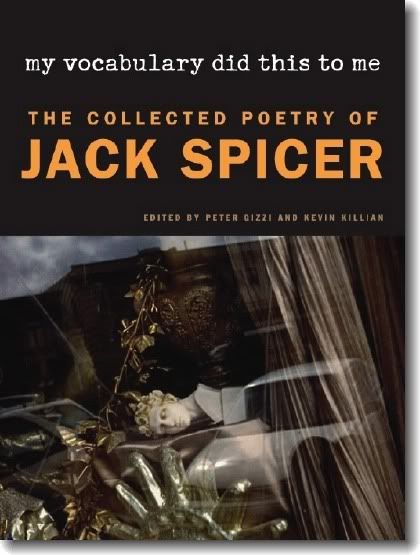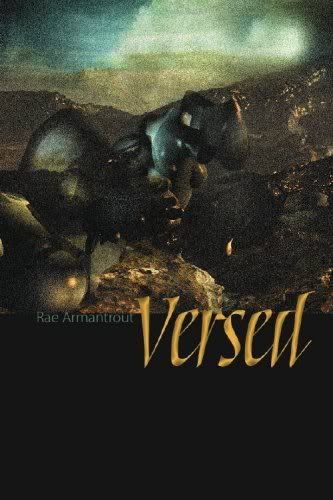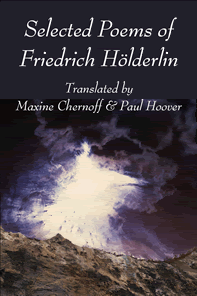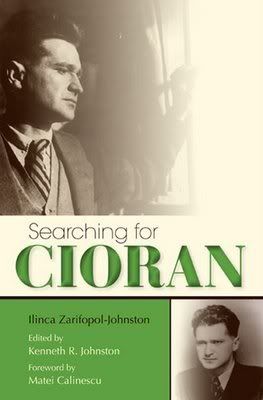I got a little depressed about a month ago when my sister's boyfriend convinced my dad that we all oughta go see Zack and Miri Make a Porno. terrible.
top ten albums of 2008:
1. Kevin Drumm - Imperial Distortion
2. Prurient - Arrowhead
3. Paul Westerberg - 5:05 / 3oclockreep / Bored of Edukation
4. Evangelista - Hello, Voyager
5. Have Heart - Songs to Scream at the Sun
6. Li Jianhong - San Sheng Shi
7. the Advisory Circle - Other Channels
8. Portishead - Third
9. Dusk + Blackdown - Margins Music
10. Graham Lambkin/Jason Lescalleet - The Breadwinner
Wednesday, December 17, 2008
Sunday, November 16, 2008
Sunday, November 9, 2008
Yesterday afternoon, around 2.30 or so, Kyle and I went to see Changeling. For the first half or so I kept contemplating Clint Eastwood's incapacity to illuminate scenes properly. This does serve some scenes well, the dessicated horror of coming home to find one's son is missing - something difficult, I guess, to evoke - reminiscent of that scene in The Lime Twig: "Something was coming toward the window and it made her lonely....The missing of Michael came over her, the loneliness, the small grief, and she was drifting quickly down the day and time itself was wandering."
But other poorly-lit scenes put me in mind of Seven, something I've always thought of a piece of hackwork (which may yet deserve revaluation since I haven't seen it in years), a movie the doings of whose characters unfold in a city apparently lacking in proper interior lighting. Is it so much to ask?
Usually Angelina Jolie strikes me as smug, but here I couldn't stop looking at her fine features, her skinny body, would that everyone were so well-formed! I dislike seeing executions on-screen.
We left in the evening, at sunset, and it was chilly - a time of night carried forward from the somber bleak entertainment we'd just witnessed.
Later I got to hold a guinea pig! Now I'm sitting here drinking coffee and listening to Neurosis.
But other poorly-lit scenes put me in mind of Seven, something I've always thought of a piece of hackwork (which may yet deserve revaluation since I haven't seen it in years), a movie the doings of whose characters unfold in a city apparently lacking in proper interior lighting. Is it so much to ask?
Usually Angelina Jolie strikes me as smug, but here I couldn't stop looking at her fine features, her skinny body, would that everyone were so well-formed! I dislike seeing executions on-screen.
We left in the evening, at sunset, and it was chilly - a time of night carried forward from the somber bleak entertainment we'd just witnessed.
Later I got to hold a guinea pig! Now I'm sitting here drinking coffee and listening to Neurosis.
Saturday, October 25, 2008
the following, this season





Listening to John McCain, I think "I never liked you - not in 2000, not now." A minor variety of liberal groupthink holds that he was respectable eight years ago. He was not.
Friday, October 24, 2008
Some friends and I are watching right now Star Trek: First Contact (wasn't my choice but it seems fun, Alice Krige!) after Drop Dead Gorgeous earlier and a visit to a coffeeshop across 11th for dinner.
So what I really want to chronicle is: albums listened to today.
- Bjork - Homogenic
- Robert Horton - Winter Suite
- Filament - 29092000
- and the real treat, Ex-Cocaine/Yellow Swans' split on No No Fun. The Yellow Swans' track is nothing to write home about, though not bad either - but Ex-Cocaine! Music to my hungover ears around 11 this morning.
tomorrow: to write at least two pages on Paradise Lost and one on Nightwood; to watch Night of the Hunted (not a typo! a Jean Rollin flick) and later maybe Saw V if I'm lucky.
So what I really want to chronicle is: albums listened to today.
- Bjork - Homogenic
- Robert Horton - Winter Suite
- Filament - 29092000
- and the real treat, Ex-Cocaine/Yellow Swans' split on No No Fun. The Yellow Swans' track is nothing to write home about, though not bad either - but Ex-Cocaine! Music to my hungover ears around 11 this morning.
tomorrow: to write at least two pages on Paradise Lost and one on Nightwood; to watch Night of the Hunted (not a typo! a Jean Rollin flick) and later maybe Saw V if I'm lucky.
Friday, October 10, 2008
A question put across on Livejournal about a week ago, in one of the communities meant to help listless users who might not otherwise be writing to overcome writers' block: "It’s the Day of German Unity, marking the 1990 reunification of East and West Germany. In our current period of global instability, do you ever feel nostalgic for the seeming simplicity of the Cold War?" The immediate answer: of course not! Mutually-assured destruction, the threat of Communist encroachment, Western jingoism, who would care to return to any of that?
Yet analyze with rigor the idea of nostalgia, a subject on which Svetlana Boym writes eloquently, noting that the opposition between modern Russia and the West still holds currency there. (Or Andrew Meier, quoting a poll in Black Earth: "43 percent of those queried yearned for the return of Revolution Day.") Nostalgia is not necessarily intended as a healthy emotion, one rooted in a stable grasp on the difference between here and there. It's also an emotion that erases these distinctions, that blurs earlier sensibilities and selves into the present, an impingement on the possibility of acting with reference to what's right around you.
And we find that this nostalgia persists. Taking into account something like the specific allure of Eastern Promises. What are the eastern promises exactly? The obvious answer would be the promises made to Tatiana, of a rich and successful life in England, escaping her home village - promises heartlessly broken as she's raped and drugged, turned into a teenage hooker, makes it out of her captivity and dies anyway. (The drugs, an interesting touch: heroin, an emblem of Western anomie deployed against a figure who rejected the same.)
But those promises aren't "Eastern," she'd have had to go west to get to England anyway. The eastern promises are those invoked through a scene like Viggo Mortensen's initiation into organized crime. Or the voyeuristic foray into a bathhouse that no one except cultural outsiders would ever want to patronize, or the restaurant where a creepily epicene figure sings a boisterous birthday anthem, untranslated in subtitles, to a decrepit old lady slumped at the head of the table. The promise of a region entirely outside Western sensibilities and mores, one which we can potentially access but which retains its impossible allure.
And yet the portrayal of this region is as a construct. Viggo went to great lengths for the sake of a convincing performance, but he's still Viggo Mortensen. Armin Mueller-Stahl is German. Tatiana is played by a French actress, Sarah-Jeanne Labrosse, but voiced by a girl who can more convincingly manage the accent. The crime family seems increasingly inflected by the culture of contemporary England, and beyond the scenes of impossibly exotic, sordid glamour - the warm temptation of the restaurant in the rain, a room that shifts into a distant outpost the minute it's assigned a new symbolic role - the specific markers of their own culture are almost put forth post mortem. I watched the movie with some folks a few nights ago; my friend Rachel commented right after the opening scene of throat-slashing violence that it reminded her of Sweeney Todd. Exactly! And Tatiana's ventriloquized diaries, heard through smothering layers of translation, cliche and subjective sensibility, reduced by Stepan to a series of abject keywords ("'prostitutsiya,' I think you can guess. I'm going to wash my hands").
Nostalgia is with us whether we like it or not. There's the widespread, baffling appeal of Dr. Strangelove, a movie as dated and irritatingly lacking in cleverness as the worst comic productions of that period. No one could possibly watch this movie for the contrast, the relief it provides: they watch it for its vivid invocation of a time when imminent destruction was a terror, when we could afford the sort of sour misanthropy that's the comic stock of the movie because the alternative, to internalize the possibility of this destruction in full, would be too nerve-wracking.
More nostalgia: the success of contemporary stories - Jarhead and even Three Kings, up against the failure of various Iraq War-era movies (the latter none of which, I'll admit, I've actually seen). Already exhausted, I want to answer that I feel this nostalgia, and so does everyone else - and more, that as Derrida points out, the subject of nostalgia remains with us. "Seeming simplicity" indeed.
Yet analyze with rigor the idea of nostalgia, a subject on which Svetlana Boym writes eloquently, noting that the opposition between modern Russia and the West still holds currency there. (Or Andrew Meier, quoting a poll in Black Earth: "43 percent of those queried yearned for the return of Revolution Day.") Nostalgia is not necessarily intended as a healthy emotion, one rooted in a stable grasp on the difference between here and there. It's also an emotion that erases these distinctions, that blurs earlier sensibilities and selves into the present, an impingement on the possibility of acting with reference to what's right around you.
And we find that this nostalgia persists. Taking into account something like the specific allure of Eastern Promises. What are the eastern promises exactly? The obvious answer would be the promises made to Tatiana, of a rich and successful life in England, escaping her home village - promises heartlessly broken as she's raped and drugged, turned into a teenage hooker, makes it out of her captivity and dies anyway. (The drugs, an interesting touch: heroin, an emblem of Western anomie deployed against a figure who rejected the same.)
But those promises aren't "Eastern," she'd have had to go west to get to England anyway. The eastern promises are those invoked through a scene like Viggo Mortensen's initiation into organized crime. Or the voyeuristic foray into a bathhouse that no one except cultural outsiders would ever want to patronize, or the restaurant where a creepily epicene figure sings a boisterous birthday anthem, untranslated in subtitles, to a decrepit old lady slumped at the head of the table. The promise of a region entirely outside Western sensibilities and mores, one which we can potentially access but which retains its impossible allure.
And yet the portrayal of this region is as a construct. Viggo went to great lengths for the sake of a convincing performance, but he's still Viggo Mortensen. Armin Mueller-Stahl is German. Tatiana is played by a French actress, Sarah-Jeanne Labrosse, but voiced by a girl who can more convincingly manage the accent. The crime family seems increasingly inflected by the culture of contemporary England, and beyond the scenes of impossibly exotic, sordid glamour - the warm temptation of the restaurant in the rain, a room that shifts into a distant outpost the minute it's assigned a new symbolic role - the specific markers of their own culture are almost put forth post mortem. I watched the movie with some folks a few nights ago; my friend Rachel commented right after the opening scene of throat-slashing violence that it reminded her of Sweeney Todd. Exactly! And Tatiana's ventriloquized diaries, heard through smothering layers of translation, cliche and subjective sensibility, reduced by Stepan to a series of abject keywords ("'prostitutsiya,' I think you can guess. I'm going to wash my hands").
Nostalgia is with us whether we like it or not. There's the widespread, baffling appeal of Dr. Strangelove, a movie as dated and irritatingly lacking in cleverness as the worst comic productions of that period. No one could possibly watch this movie for the contrast, the relief it provides: they watch it for its vivid invocation of a time when imminent destruction was a terror, when we could afford the sort of sour misanthropy that's the comic stock of the movie because the alternative, to internalize the possibility of this destruction in full, would be too nerve-wracking.
More nostalgia: the success of contemporary stories - Jarhead and even Three Kings, up against the failure of various Iraq War-era movies (the latter none of which, I'll admit, I've actually seen). Already exhausted, I want to answer that I feel this nostalgia, and so does everyone else - and more, that as Derrida points out, the subject of nostalgia remains with us. "Seeming simplicity" indeed.
Saturday, October 4, 2008
Going to the liquor store later, I think, to get some wine for a dinner party a friend is hosting tonight. Though I've been able to buy booze for a couple of years now, there's still almost nothing more terrifying than the sudden relentlessness of choice I face when walking into such a store. I suppose I could always ask for help - "what goes well with pasta?" which I actually asked my dad last night - but then there's the odd contract of expectation one enters into, the implied insult of turning down a suggestion. Usually I do fine by chance anyway.
Prurient: hearing now Cocaine Death, a compilation of EPs, I think. Six or seven new releases this year alone to catch up on, now that I'm really hooked. And then, hey, this interview. Hearing this music on MP3 is necessary for me, but an odd reappropriation of its physicality, which Fernow puts at issue elsewhere. I wonder what frequencies I miss but then remember my hearing is damaged anyway. I especially like Fernow's notion - by now a commonplace I guess, but still worth restating - that electroacoustic material is as harsh as "harsh" noise. In the light of this year's Arrowhead album I wonder whether he's heard Mitsuhiro Yoshimura.
Prurient: hearing now Cocaine Death, a compilation of EPs, I think. Six or seven new releases this year alone to catch up on, now that I'm really hooked. And then, hey, this interview. Hearing this music on MP3 is necessary for me, but an odd reappropriation of its physicality, which Fernow puts at issue elsewhere. I wonder what frequencies I miss but then remember my hearing is damaged anyway. I especially like Fernow's notion - by now a commonplace I guess, but still worth restating - that electroacoustic material is as harsh as "harsh" noise. In the light of this year's Arrowhead album I wonder whether he's heard Mitsuhiro Yoshimura.
Thursday, October 2, 2008
Jürg Frey
Jürg Frey's string quartets: these are lovely. I'm in the midst of "Streichquartett II (1998-2000)" and there's a Feldmanesque tension to the whole thing, yet the faint sense of a developing melody, something melancholy, distant in the background. A nice bridge between minimalism and, well, expressionism. I hadn't realized till today that I've heard Frey before on the fine Three Backgrounds disc with Radu Malfatti and Michael Pisaro. I need to hear that one again soon.
Also prepping a prospectus on "authority in Paradise Lost" as I wait to watch Biden/Palin with some friends. I wonder whether they've prepped her in Supreme Court cases, since she was unable to name more than one in the Katie Couric interview.
Also prepping a prospectus on "authority in Paradise Lost" as I wait to watch Biden/Palin with some friends. I wonder whether they've prepped her in Supreme Court cases, since she was unable to name more than one in the Katie Couric interview.
Saturday, September 27, 2008
There are a few places in this city where I think things can't get any worse - in high school the approaching of places used to make me dizzy, just rounding the curve of a particular building at night, but now that sweep of unfamiliarity comes mostly with imagining dreadful lives. Last night I went to the fair with Kyle, Arlo and Ashley, and I didn't really get this feeling, oddly enough. In distance it's not too far from where I live, which is part of that bewilderment - the sense of geographical estrangement, the fact of being unable to get home without some effort. I felt indifferent to the carnies, to the juggalos and other denizens I saw. Because it was pleasant! Even lightly masked with pageantry, grit loses its vitality. We paid $2 each to be allowed into, heh, the tent of "natural attractions." Images of the "world's fattest man," and a 200-pound tortoise, a Mongolian hissing beetle festooned the tent! We went inside and there was in fact a tortoise. Also a "devil woman" and a rack of deformed fetuses - replicas in fact - in jars. I think the chupacabra had escaped already. The tortoise was pretty sad to watch, breathing in a fetid kiddie pool.
still wish we'd paid a buck to see "the world's smallest woman."
still wish we'd paid a buck to see "the world's smallest woman."
Thursday, September 25, 2008
late work and the ends of lives
Here we have an article suggesting - with qualifications - that old writers having exhausted the possibilities of their work might do well to throw in the towel before embarrassing themselves.
The examples of Murdoch and Updike are cited. I have yet to finish reading any of Murdoch's novels past Nuns and Soldiers, and Updike's various doorstop-like compendia of essays are a pleasure for anytime I'm tired and want to see opinions, wrong or right, stated with succinct precision. (But the point stands for his fiction.)
As for Murdoch, what an interesting case! I've only seen a couple of her books called outright duds (Jackson's Dilemma, maybe The Red and the Green?). The later ones seem too heavy with dialogue, not too interesting in their scenarios. But then a bunch of her early novels didn't draw me in at all - I read last week The Italian Girl, something of a bore.
Edward Said in one of his own last works makes a case for the idea that late work can be subtler, richer, distinct from anything that's come before. Of course it's impossible to think of Updike writing "late work" in any real sense of the word, he's working against time and has steadily refused to evolve as an artist to any extent. But what about V.S. Naipaul? Last year in a paper for class, I made a case I'm not sure I believe, that the novels Half a Life and Magic Seeds aren't in fact irredeemable, that they represent the sundering of a life in the midst of modernity and so on. But most would say he too should probably give up.
Henry James, an exception, wrote the three best novels of his career at the end, then spent a few years obsessively polishing up old work. Another troubling case: it's not like he saved it all up for big statements, in terms of publication he was pretty prolific. I think it's bizarre to approach writers' reputations as this article does. Let them worry about that at the time. One never knows what the likes of Doris Lessing might suddenly yield. Reputations will sort themselves out in history.
The examples of Murdoch and Updike are cited. I have yet to finish reading any of Murdoch's novels past Nuns and Soldiers, and Updike's various doorstop-like compendia of essays are a pleasure for anytime I'm tired and want to see opinions, wrong or right, stated with succinct precision. (But the point stands for his fiction.)
As for Murdoch, what an interesting case! I've only seen a couple of her books called outright duds (Jackson's Dilemma, maybe The Red and the Green?). The later ones seem too heavy with dialogue, not too interesting in their scenarios. But then a bunch of her early novels didn't draw me in at all - I read last week The Italian Girl, something of a bore.
Edward Said in one of his own last works makes a case for the idea that late work can be subtler, richer, distinct from anything that's come before. Of course it's impossible to think of Updike writing "late work" in any real sense of the word, he's working against time and has steadily refused to evolve as an artist to any extent. But what about V.S. Naipaul? Last year in a paper for class, I made a case I'm not sure I believe, that the novels Half a Life and Magic Seeds aren't in fact irredeemable, that they represent the sundering of a life in the midst of modernity and so on. But most would say he too should probably give up.
Henry James, an exception, wrote the three best novels of his career at the end, then spent a few years obsessively polishing up old work. Another troubling case: it's not like he saved it all up for big statements, in terms of publication he was pretty prolific. I think it's bizarre to approach writers' reputations as this article does. Let them worry about that at the time. One never knows what the likes of Doris Lessing might suddenly yield. Reputations will sort themselves out in history.
Sunday, September 21, 2008
Exhaust - Enregistreur

In the thick of high school I spent a lot of time looking at the beautiful covers of Constellation releases. Seven years later I somewhat regret a lot of the music I bought in those days, but not a single CST album do I regret shelling out $14 for! There's a singular look, carefully conceived and thoughtful, that elevates these releases and even their music when that's not at its best.
Enregistreur, another I meant to hear and never did till now (ironically I bought most of this pointedly anti-corporate label's releases at Borders, which didn't do the best job of keeping 'em in stock), is rooted in a percussive, droning minimalism that doesn't require the trappings of elegant design to convey its sensibility.
Song titles do go a long way in that direction, though - "Behind the Water Tower," "My Country Is Winter," "Silence Sur le Plateau" - these song titles set me up for compositions rooted in a firm sense of place, and indeed the songs take their time in developing, though they don't reach the level of singular definition that'd carry them out of an album context. It's a wintry album - again I'll say minimal, surprisingly so, with a fluid use of bass as a primary instrument. This isn't rock, even of a post- variety, it's meditative music that lends itself as much to solitude as dread. Where did this stuff go, and why did I stop listening to Constellation stuff in the first place?
Subscribe to:
Posts (Atom)